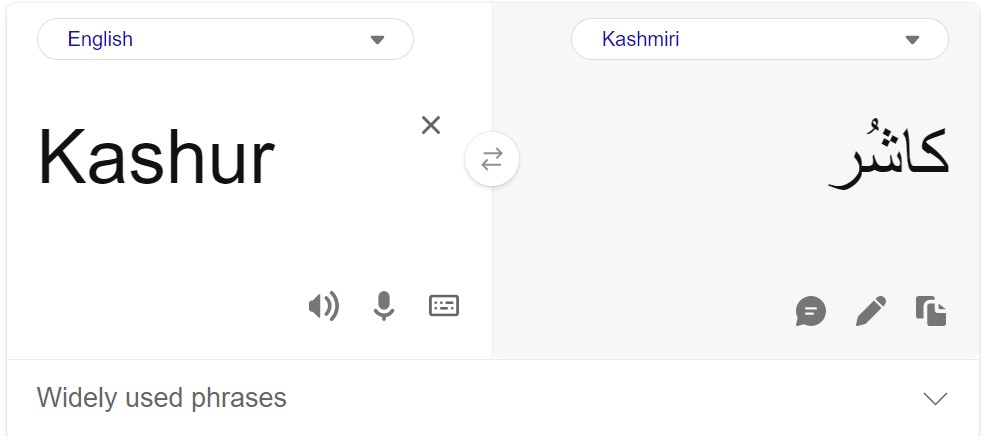
Shah Basit
Taking a significant step towards linguistic inclusivity, Microsoft has recently expanded its Translator capabilities, adding four additional languages, including Kashmiri.
With this development, the total count now reaches 20 supported Indian languages, edging closer to covering all 22 officially recognized languages in the country. This expansion notably addresses the linguistic needs of nearly 95% of India’s diverse population.
Users can now access translation services across various platforms, such as the Microsoft Translator app, Edge browser, Office 365, Bing Translator, and Azure AI Translator API, which is utilized by companies like Jio Haptik and Koo.
Azure AI Translator enables seamless translation between the newly introduced languages and over 135 others, facilitating translation for apps, websites, workflows, and tools. Microsoft emphasizes that businesses can leverage this multi-language support for translating e-content, e-commerce product catalogues, product documentation, and internal communications.
The addition of Kashmiri, spoken by around 7 million people in Jammu Kashmir and parts of neighboring Pakistan, stands out as a noteworthy achievement.
This move is expected to have a profound impact on preserving indigenous knowledge, fostering cultural identity, and bridging the linguistic gap to the mainstream. Microsoft’s commitment to linguistic diversity goes beyond technological advancement, aiming to facilitate better education, governance, communication, and economic opportunities for local communities.
The preeminent literary organization of Jammu and Kashmir, Adbi Markaz Kamraz, expressed its appreciation on Thursday for the inclusion of Kashmiri in Microsoft Translate services, considering it a significant gift as 2023 comes to a close. Microsoft recently expanded its language support by adding Kashmiri to Microsoft Translator, elevating the total number of supported Indian languages to 20.
In a post on X, the AMK conveyed its deep appreciation and sincere thanks to Microsoft India@mstranlator and @Azure. The inclusion of Kashmiri, benefiting 7 million speakers, was described as monumental by the AMK. The organization also expressed its readiness to contribute to further advancements in this regard.
Notably, last month, AMK initiated an online petition urging Google to incorporate the approved script Nastaliq for the Kashmiri language into its translation services. While consistently reaching out to Google for the inclusion of Kashmiri in Google Translate services, the AMK remains optimistic about positive results.
The organization acknowledged the achievement of including Kashmiri in Microsoft Translate services, considering it a remarkable milestone celebrated by Kashmiri language enthusiasts. A hopeful outlook was expressed for another celebration in the coming year if efforts to include Kashmiri in Google Translate services prove successful in 2024, as stated by Markaz in its official statement.
Microsoft’s strategic move not only contributes to the preservation of cultural heritage but also holds immense potential for economic empowerment. The Translator’s reach will enable local artisans and businesses to connect with a broader audience, transcending language barriers. Collaborative efforts with companies like Jio Haptik and Koo underscore the transformative role technology plays in democratizing access to information across diverse linguistic landscapes.
Swapan Rajdev, Co-founder & CTO of Jio Haptik, praised Azure’s commitment to expanding offerings in Indic languages, emphasizing the significance of multilingual support for Indian languages. Similarly, Harsh Singhal, Head of Machine Learning at Koo, highlighted the critical role translation plays in breaking language barriers and fostering the growth of digital communities, according to Microsoft’s official blog.
Rajiv Kumar, Managing Director of Microsoft India, expressed the company’s dedication to creating inclusive solutions. Using Deep Neural Networks, Microsoft has addressed the intricacies of complex Indian languages, including nuances such as gender, politeness level, and word type. This approach ensures that the translation models continually evolve to meet the growing linguistic diversity and demands.




